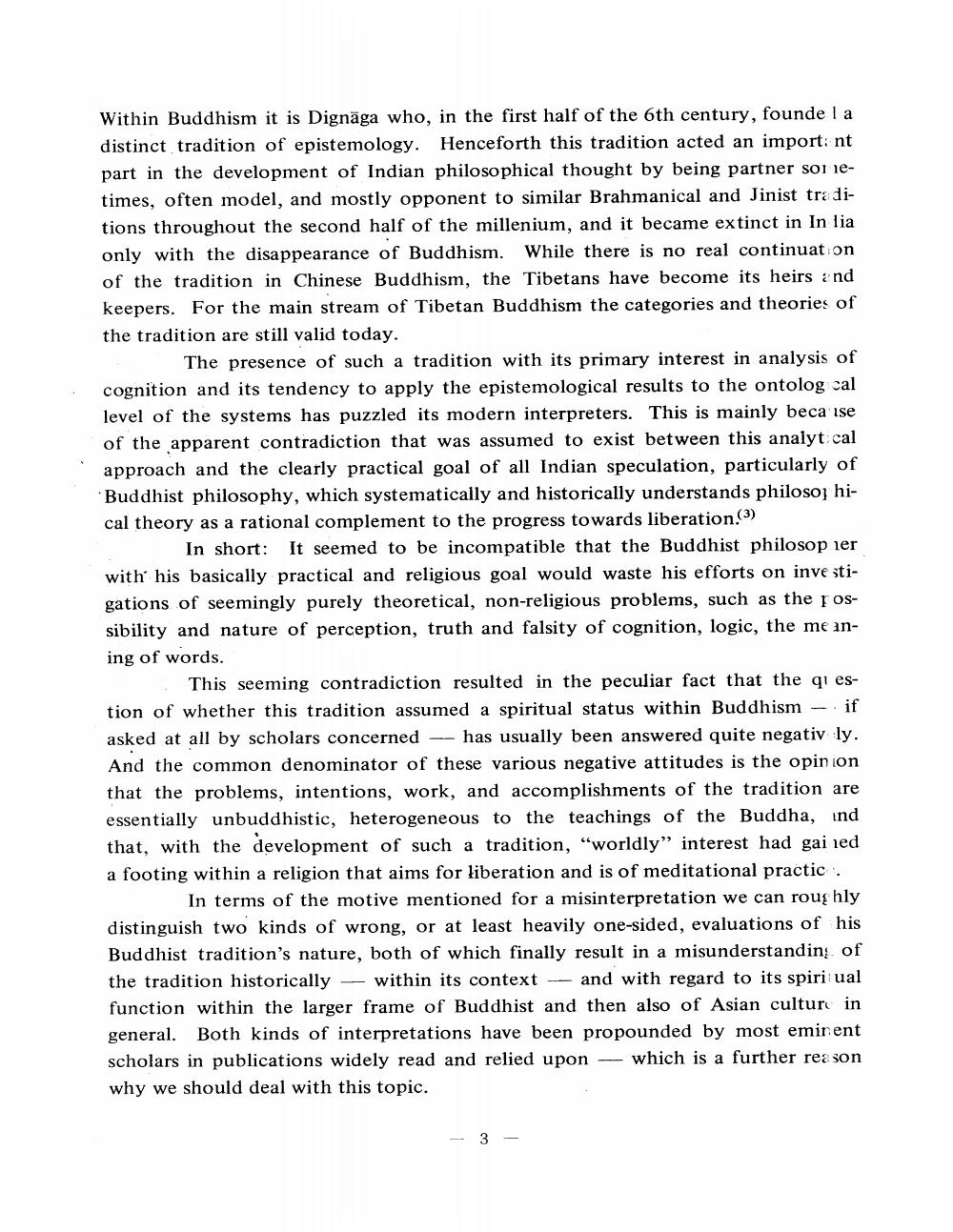Book Title: Spiritual Place Of Epistemological Tradition In Buddhism Author(s): Ernst Steinkellner Publisher: Ernst Steinkellner View full book textPage 3
________________ Within Buddhism it is Dignaga who, in the first half of the 6th century, founde l a distinct tradition of epistemology. Henceforth this tradition acted an import: nt part in the development of Indian philosophical thought by being partner soi etimes, often model, and mostly opponent to similar Brahmanical and Jinist traditions throughout the second half of the millenium, and it became extinct in In lia only with the disappearance of Buddhism. While there is no real continuation of the tradition in Chinese Buddhism, the Tibetans have become its heirs and keepers. For the main stream of Tibetan Buddhism the categories and theories of the tradition are still valid today. The presence of such a tradition with its primary interest in analysis of cognition and its tendency to apply the epistemological results to the ontolog cal level of the systems has puzzled its modern interpreters. This is mainly beca ise of the apparent contradiction that was assumed to exist between this analytical approach and the clearly practical goal of all Indian speculation, particularly of Buddhist philosophy, which systematically and historically understands philoso; hical theory as a rational complement to the progress towards liberation.(3) It seemed to be incompatible that the Buddhist philosop er with his basically practical and religious goal would waste his efforts on investigations of seemingly purely theoretical, non-religious problems, such as the possibility and nature of perception, truth and falsity of cognition, logic, the meaning of words. This seeming contradiction resulted in the peculiar fact that the question of whether this tradition assumed a spiritual status within Buddhism - if asked at all by scholars concerned has usually been answered quite negativ ly. And the common denominator of these various negative attitudes is the opinion that the problems, intentions, work, and accomplishments of the tradition are essentially unbuddhistic, heterogeneous to the teachings of the Buddha, ind. that, with the development of such a tradition, "worldly" interest had gai ed a footing within a religion that aims for liberation and is of meditational practice. In terms of the motive mentioned for a misinterpretation we can roughly distinguish two kinds of wrong, or at least heavily one-sided, evaluations of his Buddhist tradition's nature, both of which finally result in a misunderstanding of the tradition historically within its context and with regard to its spiritual function within the larger frame of Buddhist and then also of Asian culture in general. Both kinds of interpretations have been propounded by most eminent scholars in publications widely read and relied upon which is a further reason why we should deal with this topic. - 3 -Page Navigation
1 2 3 4 5 6 7 8 9 10 11 12 13 14 15 16 17 18
